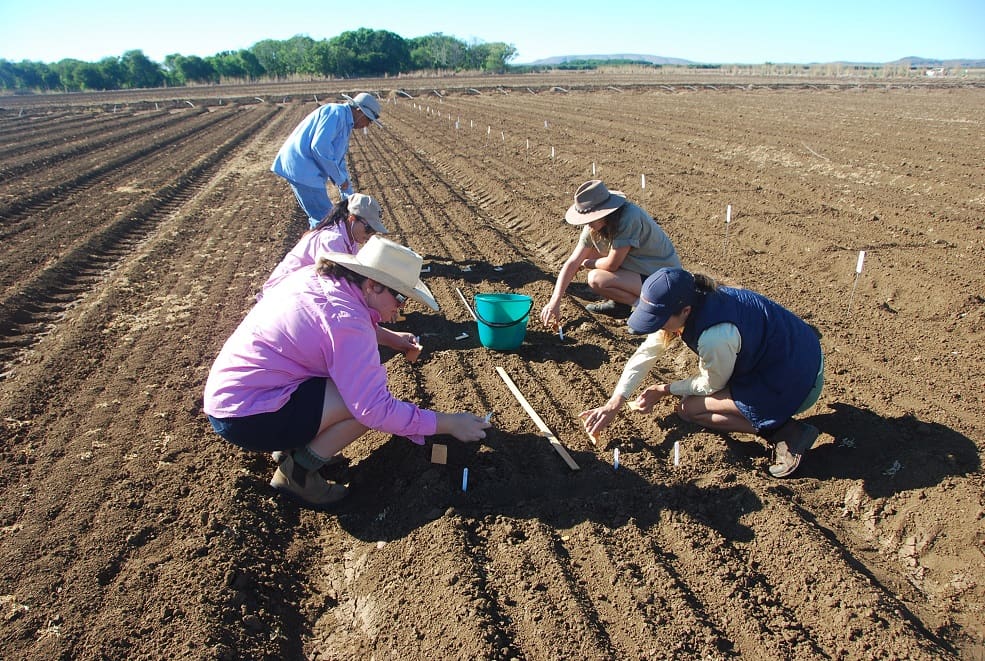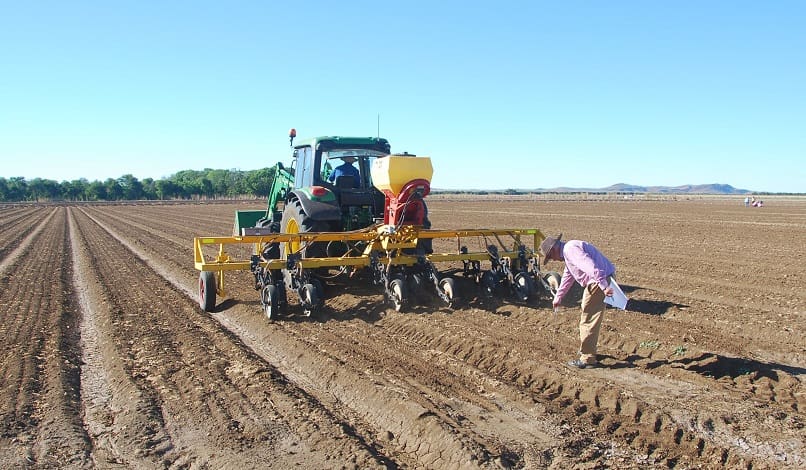
Hand seeding plantago trials at the Department of Primary Industries and Regional Development’s Frank Wise Research Institute are officers Sarah Nolan, Helena O’Dwyer, Siva Sivapalan, Holly Cattermole, and Lauren Gibson.
NORTHERN Australia research trials aim to deliver a clearer insight into the future for the fibre crop, plantago, in the Ord River Irrigation Area.
The third year of trials are now underway at the Western Australia Department of Primary Industries and Regional Development’s (DPIRD) Frank Wise Research Institute at Kununurra.
It follows renewed global interest in plantago as a food fibre alternative using the husks of the seeds, known as psyllium.
This season’s trials will incorporate four larger plots and a fertiliser trial at the research institute, to enable better assessment of the crop’s performance under farming conditions.
The research is the result of a collaboration between the department, Italy-based food company Dr Schär, national research and development organisation AgriFutures and the University of Adelaide. Local contractors Raitech and Northern Australia Crop Research Alliance are also involved.
Consultant and project leader David McNeil said the first two years of research had examined which lines of plantago were likely to deliver better seed quality and crop yields, while demonstrating good agronomic characteristics such as reliable establishment and ability to compete with weeds.
“This year, larger trial sites will give us a better sense of what commercial yields might be possible, what the quality is like and examine the processing and pest management requirements,” Professor McNeil said.
Plantago was grown commercially in the Ord region in the 1980s, with the Kimberley’s dry season providing conducive growing conditions for the crop which requires a warm and dry climate with reliable irrigation to establish and a dry finish at harvest.
“Initial work indicates we can get higher yields in the Ord compared to elsewhere in the world,” Prof McNeil said.
“The company involved is looking for a region to guarantee high quality and consistent supply. The Ord region has the water, a steady climate and skilled growers to potentially meet these requirements.”

Project leader Professor David McNeil examines the spread of seed during mechanical sowing of plantago trials, now underway in the Ord River Irrigation Area.
DPIRD development officer Siva Sivapalan said the trial plots, along with smaller variety trials of 13 selected lines, were sown in mid-May and had established well.
“We will monitor these trials throughout the season, observing crop development including flowering, ability to control weeds and insects and seed maturity, to determine the best time for harvest across varieties,” Dr Sivapalan said.
Work is also underway as part of the project to arrange relevant permits for pesticide use, to support commercial production.
Source: DPIRD

HAVE YOUR SAY